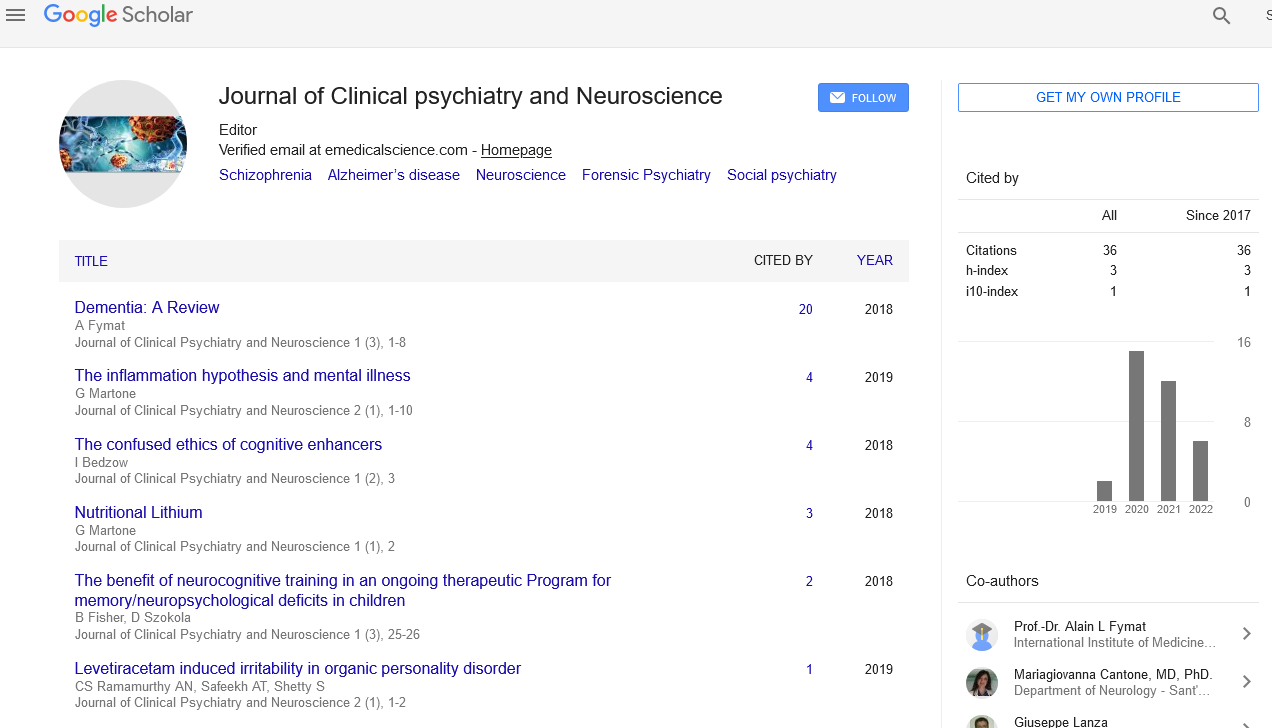Levetiracetam induced irritability in organic personality disorder
Received: 21-Mar-2019 Accepted Date: Apr 01, 2019; Published: 05-Apr-2019
Citation: Ramamurthy AN, Safeekh AT, Shetty S, et al. Levetiracetam induced irritability in organic personality disorder. J Clin Psychiatry Neurosci 2019;2(1):1-2.
This open-access article is distributed under the terms of the Creative Commons Attribution Non-Commercial License (CC BY-NC) (http://creativecommons.org/licenses/by-nc/4.0/), which permits reuse, distribution and reproduction of the article, provided that the original work is properly cited and the reuse is restricted to noncommercial purposes. For commercial reuse, contact reprints@pulsus.com
Abstract
Levetiracetam is an antiepileptic drug with favourable pharmacological characteristics and demonstrated activity in improving seizure control. Studies have shown that levetiracetam can produce behavioural symptoms in children. Organic personality disorder is primarily characterized by a change of premorbid behaviour due to an organic impairment or disease of the central nervous system. The most common symptoms described were symptoms of depression, emotional instability, irritability and impulsive behaviour.
An 18 years old gentleman presented to the psychiatry department with complaints of hair loss, excessive concern about hair loss and irritability.
Subsequently patient developed symptoms of irritability, ideas of reference and a firm belief and pre-occupation that his symptoms were secondary to his anti-epileptic medication side effects. The symptoms subsided with an adequate dose of risperidone and lorazepam with discontinuation of the anti-epileptic Levetiracetam.
Conclusion: Though the patient was on Levetiracetam the behavioural symptoms could be attributed to the brain lesions which are involved and can be managed effectively. The case in study hints a possible role of Levetiracetam in precipitation of behavioural symptoms in the individuals.





